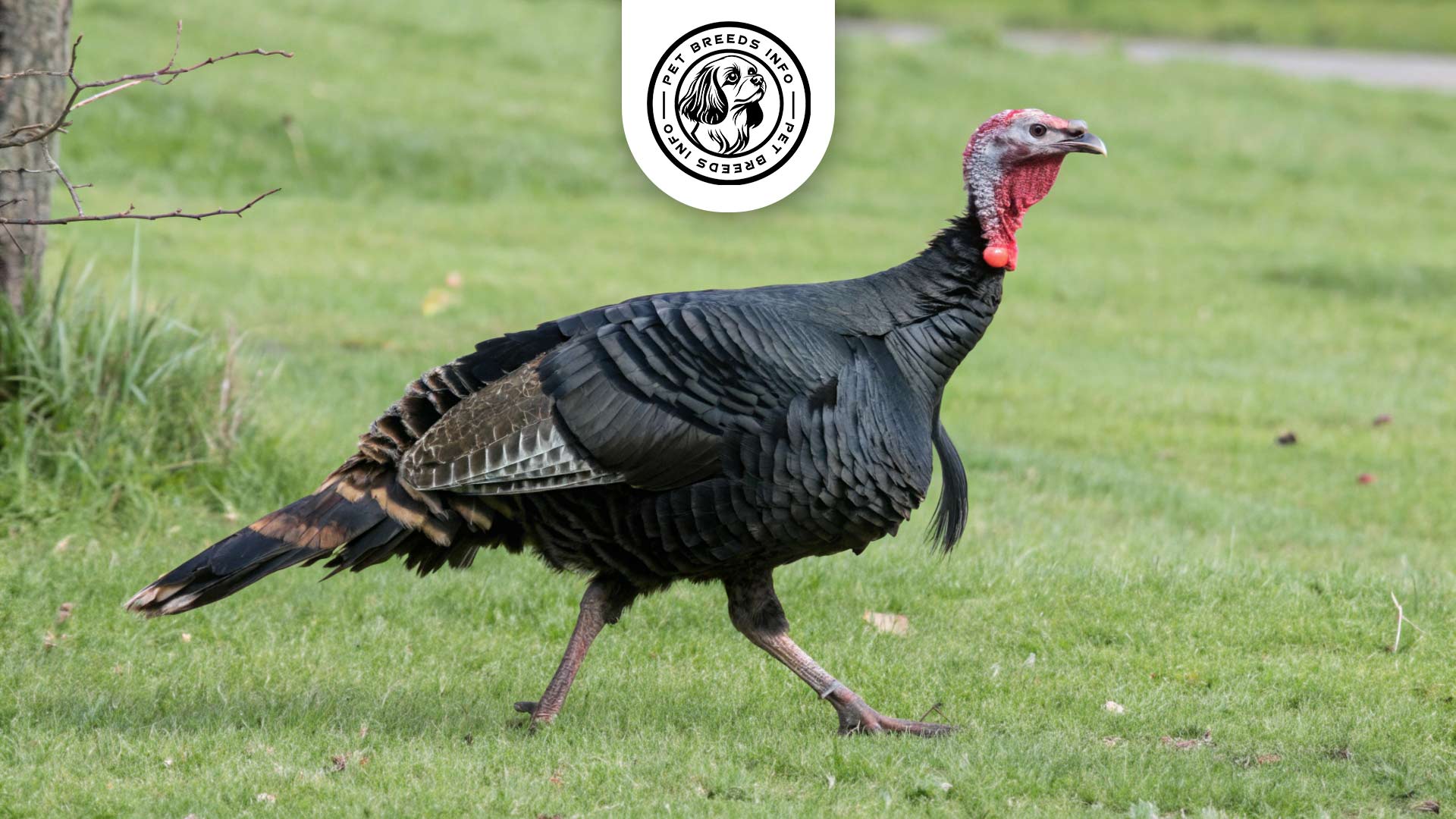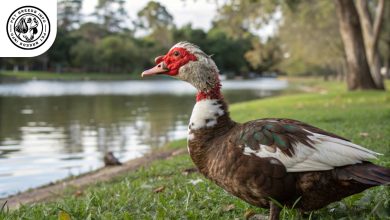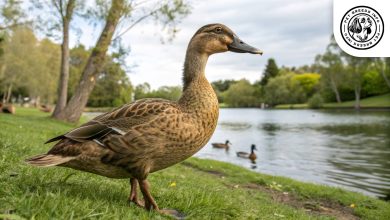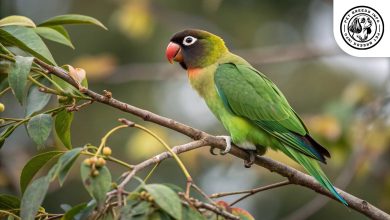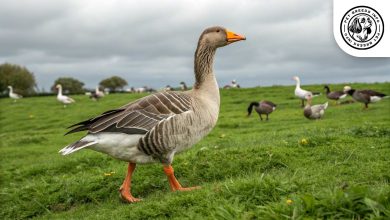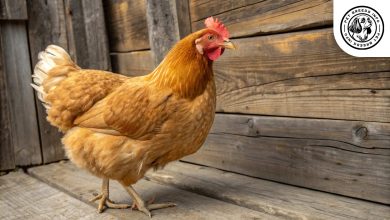Black Turkey Breed: Personality, Lifespan, Food & Care
General Introduction of the Breed
The Black Turkey, also known as “Black Spanish Turkey” or “Norfolk Black,” is a heritage breed of domestic turkey. This breed originated in Europe, particularly in Spain, before being further developed in England and later introduced to North America. Black Turkeys have been raised for centuries, valued for their flavorful meat and hardy nature.
Table of Contents
| Common Name | Black Turkey, Black Spanish Turkey, Norfolk Black |
| Scientific Name | Not explicitly mentioned in the text |
| Origin | Europe (specifically Spain), further developed in England |
| Size | Medium to large; Toms: 20-30 lbs, Hens: 12-18 lbs |
| Lifespan | 4 to 10 years |
| Talking Ability | Not applicable (poultry) |
| Colors | Primarily black with a greenish sheen |
| Noise Level | Not explicitly detailed, but typical poultry vocalizations can be expected |
| Social Behavior | Moderate; gets along with other turkeys, can be dominant with smaller birds |
Physical Characteristics
Black Turkeys are medium to large-sized birds. Adult males (toms) typically weigh between 20-30 pounds, while females (hens) weigh around 12-18 pounds.
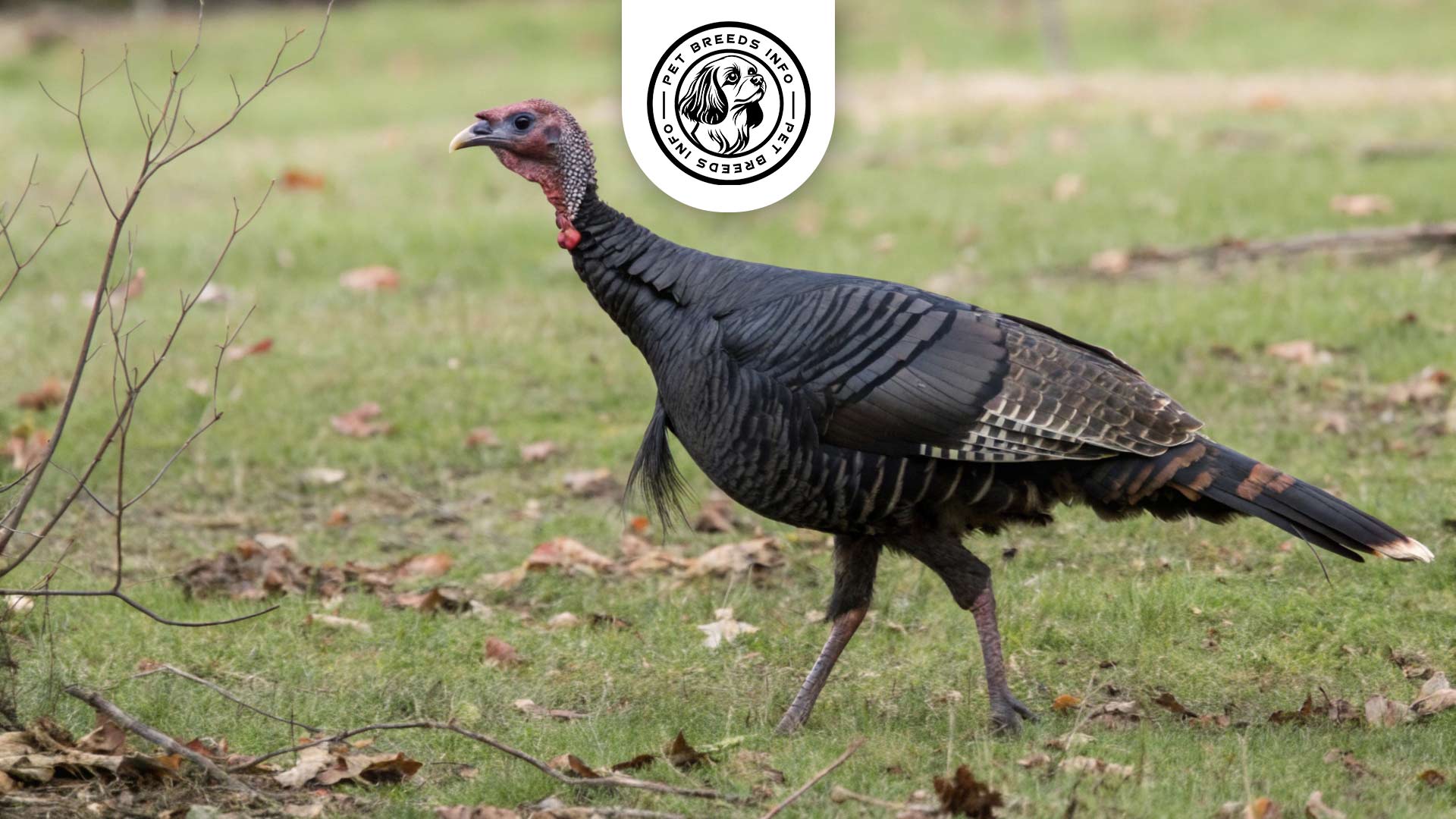
The breed is known for its striking black feathers that have a beautiful greenish sheen under sunlight. Their legs are dark gray or black, and they have a well-proportioned body structure.
Black Turkeys have dark brown eyes, a featherless head with a bluish tint, and a characteristic snood that hangs over their beak. Their tails are broad and fan-shaped, usually blending seamlessly with the rest of their dark plumage.
Read More: Black-winged Lovebird
Personality and Temperament
Black Turkeys are intelligent birds with a keen sense of awareness. They are known for their calm and docile demeanor, making them relatively easy to handle. However, males can become more territorial and assertive, especially during the breeding season.
They are active foragers and enjoy roaming freely in open spaces. Their social behavior is moderate—they get along well with other turkeys but may exhibit dominant behavior when housed with smaller birds. They can form bonds with humans, particularly if raised in a close human environment.
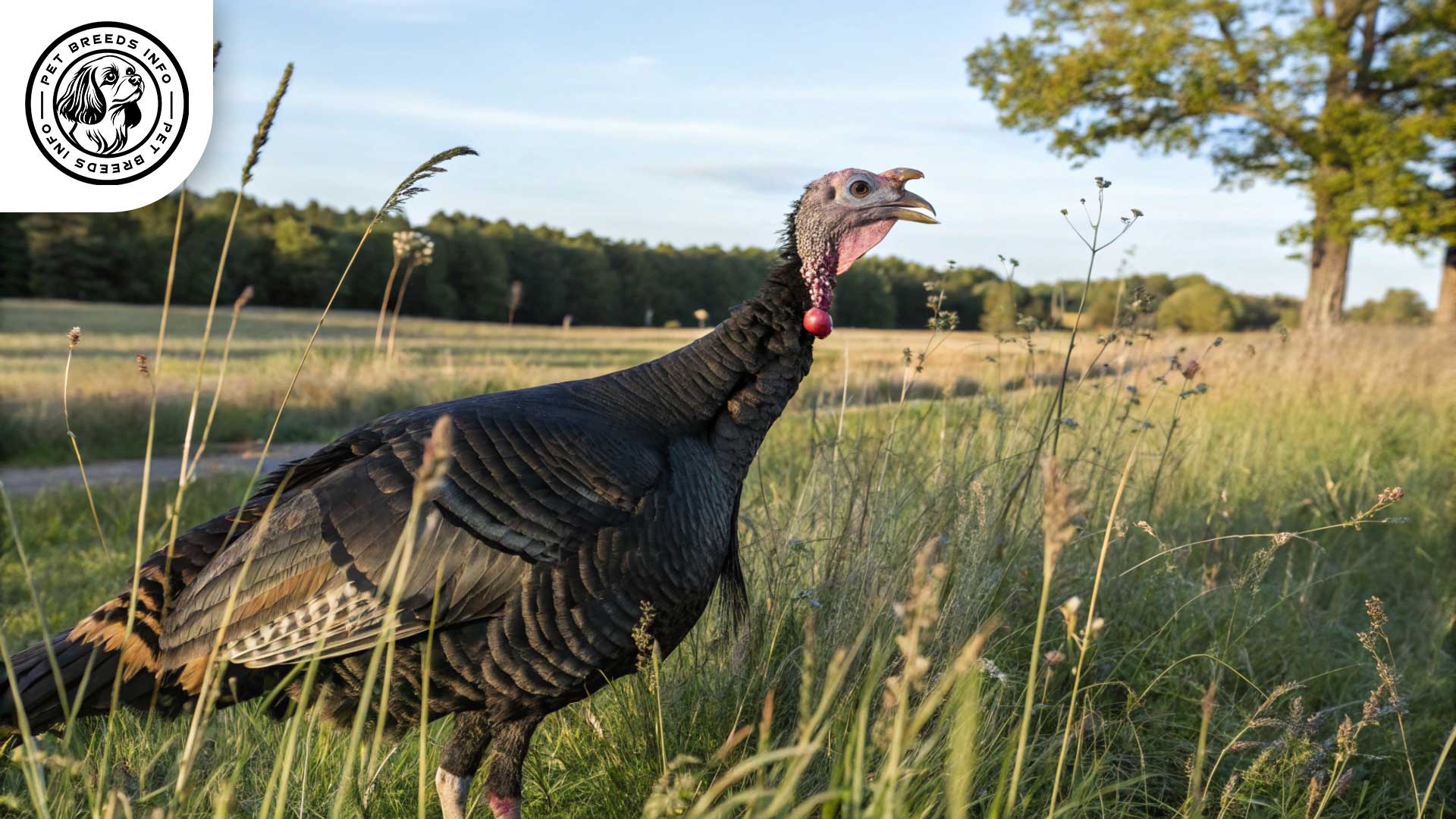
Care and Maintenance Requirements
Black Turkeys require ample space for roaming and foraging. They thrive best in free-range or pasture environments where they can move around naturally. While they can adapt to smaller enclosures, they need at least 10 square feet per bird for optimum well-being.
Their plumage does not require extensive grooming, but regular health checks are recommended to ensure they are free from parasites. Providing a dry, clean shelter with adequate ventilation is essential to keep them healthy. During extreme weather conditions—such as excessive cold or humidity—extra care should be taken to prevent respiratory issues.
Basic hygiene practices include occasional dust baths, checking feet for injuries, and trimming overgrown beak and spurs if necessary.
Diet and Nutrition
Black Turkeys thrive on a high-protein poultry diet. As chicks, they require a starter feed with at least 28% protein. As they mature, switching to a grower feed with around 20% protein helps support healthy growth.
They also benefit from access to grains, vegetables, and foraging greens such as grass and insects. Providing grit and calcium supplements ensures proper digestion and strong eggshell development for breeding hens.
Foods to avoid include processed human food, chocolate, onions, and avocados, as these can be toxic to turkeys. They should always have access to fresh, clean water.
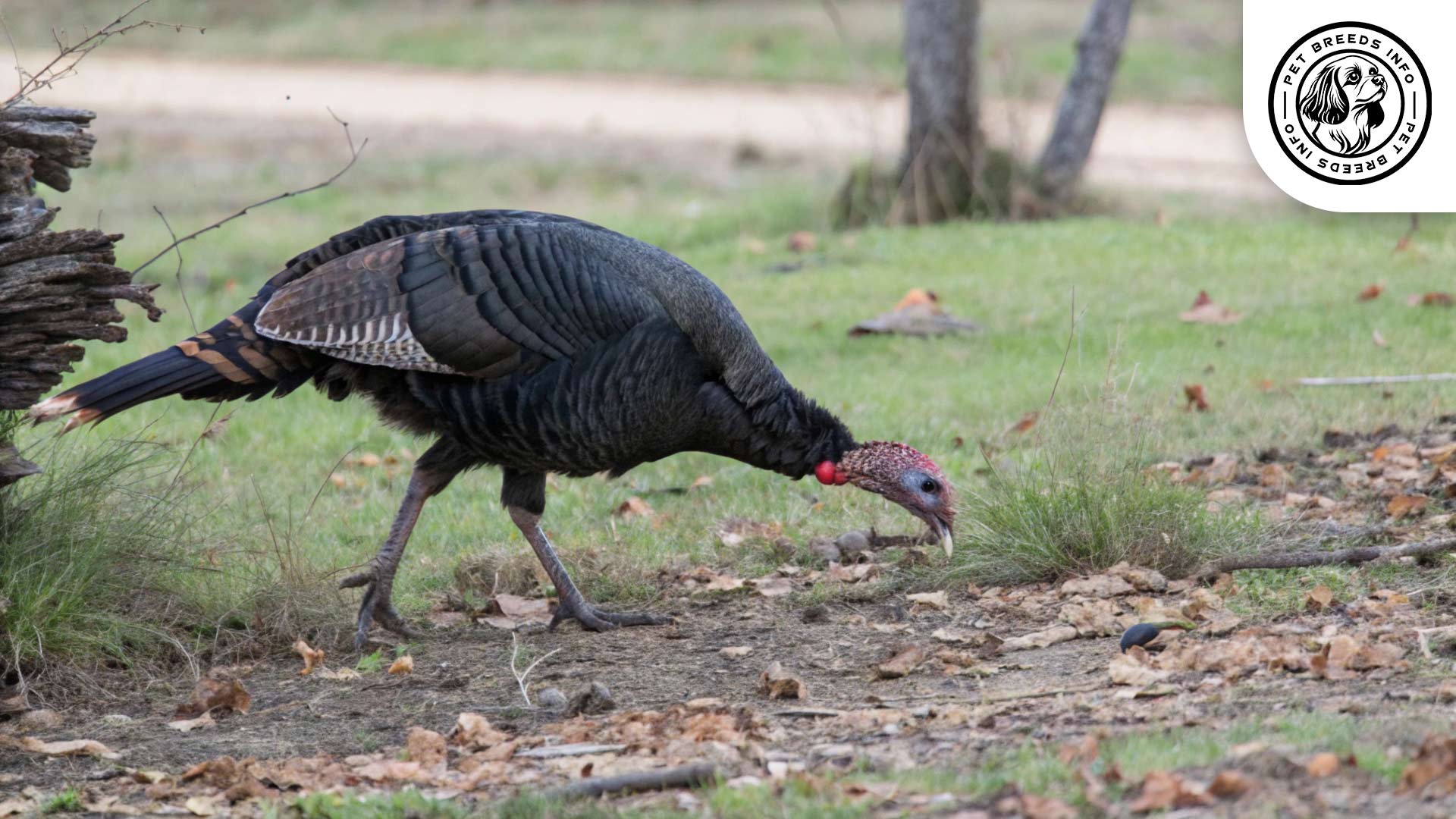
Health and Common Medical Issues
Like most turkey breeds, Black Turkeys are prone to common poultry diseases such as Blackhead disease (histomoniasis), respiratory infections, and external parasites like mites and lice.
Regular deworming and parasite control can help maintain their health. Proper diet and a clean environment significantly reduce the risk of illness.
The average lifespan of a Black Turkey ranges from 4 to 10 years, depending on their care and purpose (farm-raised for meat or kept as pets).
Vaccination and periodic veterinary check-ups are recommended for disease prevention, especially if they live among other poultry species.
Read More: Black-throated Canaryfinch
Training and Behavior Management
While turkeys are not typically trained like traditional pets, Black Turkeys can be conditioned to respond to feeding calls and familiar human interaction. Handling them frequently from a young age helps build trust and reduces their flightiness.
Providing positive reinforcement, such as treats, encourages them to follow routines. If raised with a flock, establishing a structured feeding and sheltering schedule ensures cohesive behavior.
Interaction with Other Animals and Humans
Black Turkeys generally interact well with humans, especially when socialized early. However, toms can exhibit protective behavior, particularly during mating season, and may act aggressively towards unfamiliar humans or animals.
They can coexist with other poultry such as chickens and ducks but should not be housed with smaller, more vulnerable birds due to their size and pecking hierarchy.
They are suitable for families with ample outdoor space and enjoy human engagement but do require supervision around small children as they may unintentionally peck or push.
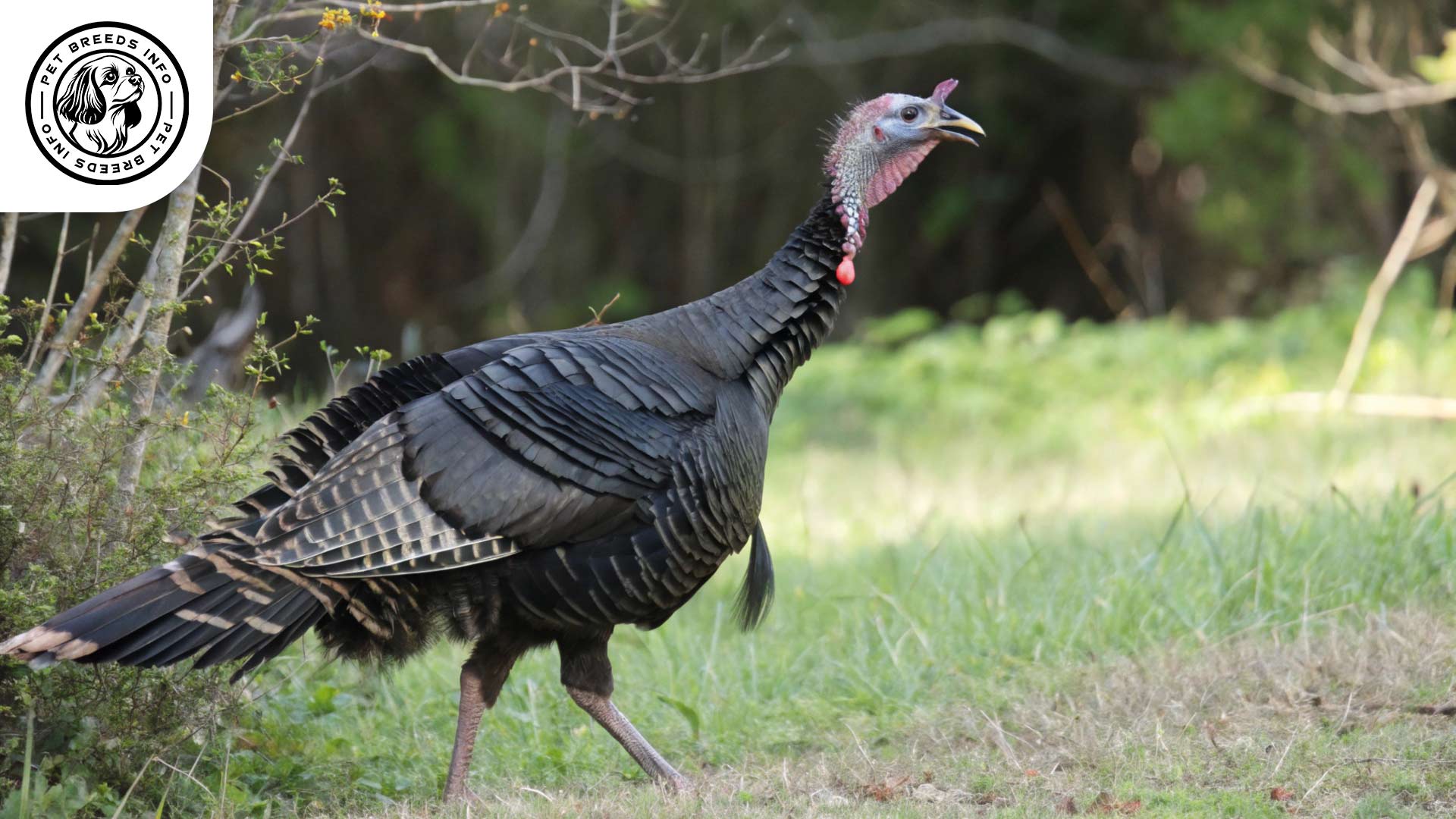
Price and Availability
The cost of Black Turkey poults (baby turkeys) ranges from $10 to $20 per chick, depending on the quality and breeder reputation. Fully grown turkeys can cost between $50 to $100, with show-quality birds being priced higher.
They are widely available through hatcheries, heritage breed farms, and poultry breeders. Prospective buyers should choose reputable sources to ensure healthy stock.
Adoption from farms or poultry rescue centers is an option for those looking to provide a home for non-commercial turkeys.
Conclusion and Final Thoughts
Black Turkeys are an excellent choice for farmers and poultry enthusiasts looking for a hardy and visually appealing heritage turkey breed. They are well-suited for free-range living and are known for their calm temperament and high-quality meat. However, they require adequate space and care to thrive.
Potential owners should consider their long-term needs, such as dietary requirements, health management, and environmental accommodations before acquiring them.
Overall, the Black Turkey is an excellent addition for those seeking a sustainable, traditional poultry breed that offers both aesthetic appeal and practicality.
Read More: Bare-eyed Cockatoo Bird
FAQ
What is a Black Turkey known for?
Black Turkeys are known for their striking black feathers with a greenish sheen, flavorful meat, and calm temperament.
How much space do Black Turkeys need?
They thrive in free-range environments but require at least 10 square feet per bird in enclosures.
Are Black Turkeys good with other animals?
They generally do well with other turkeys but should be supervised around smaller birds and can be territorial, especially males during breeding season.
What do Black Turkeys eat?
They need a high-protein poultry diet, supplemented with grains, vegetables, and foraging greens.
How long do Black Turkeys typically live?
Their average lifespan is between 4 to 10 years, depending on care.
